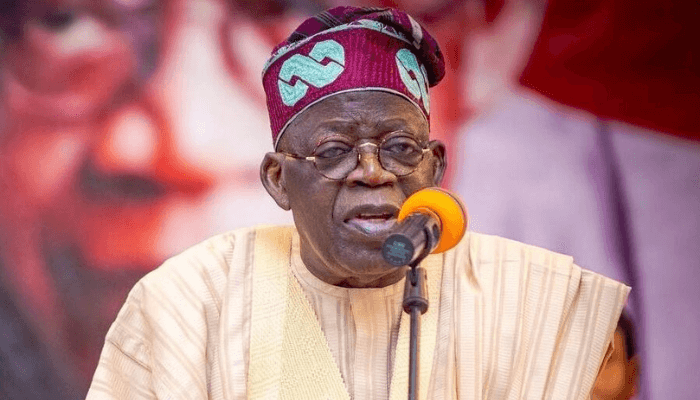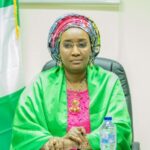President Bola Tinubu has set up a six-man panel to reposition Nigeria’s social investment programmes, with Wale Edun, the Minister of Finance and Coordinating Minister for the Economy, as its leader. The panel’s mandate is to investigate, review and reposition the National Social Investment Agency’s (NSIPA) programmes, including N-Power, Conditional Cash Transfer, Enterprise and Empowerment Programme and the Home Grown School Feeding Programme. In essence, the panel is tasked with thoroughly reviewing the operations of the Federal Ministry of Humanitarian Affairs and Social Welfare and recommending necessary reforms within the ministry and its agencies.
In just nine months of President Tinubu’s administration and in former President Muhammadu Buhari’s four years in his second term, events in the Ministry of Humanitarian Affairs and Poverty Alleviation present two significant challenges for him. First, it will assess Tinubu’s government’s capacity to rectify past issues without generating political complications for its future.
Secondly, the actions and inaction of former Minister Betta Edu will assess President Tinubu’s ability to introduce innovative methods for effectively meeting common Nigerians’ expectations regarding poverty alleviation, ensuring that funds reach their pockets and essential provisions reach their tables seamlessly.
The primary challenge in the humanitarian ministry lies in its failure to effectively reach a minimum of 70 per cent of its intended target population. A study published by the Journal of Policy and Development Studies on October 19, 2023, acknowledged the overall success of Nigeria’s social investment programmes, according to stakeholders.
Why I chose 48-member cabinet – Tinubu
Envoy cautions Nigerians, others against exporting fake products from China
However, it highlighted significant hurdles, including insufficient funds, materials and personnel; inadequate planning, delayed payments, corruption and communication gaps. The study proposed implementing proper planning, ensuring adequate budget allocations, expanding the programmes to other school categories, ensuring timely staff payments and enhancing the recruitment process to enhance the programmes’ performances.
Achieving a method to reach at least 70 per cent of the poor and youths targeted by the National Social Investment Programme (NIPS) will signify a significant accomplishment for President Tinubu’s government, fulfilling 80 per cent of its promises to Nigerians.
Since some of the programmes and schemes have not met people’s expectations and many of their managers have failed Nigerians, what recommendations and solutions should the Edu-led probe panel present to the Tinubu government to salvage the situation? And what reforms do Nigerian social investment programmes need?
First, the presidential panel should note that the direct methods of reaching the poor have failed the common man. The Tinubu government should opt for indirect methods by leveraging a well-known and respected hybrid Public-Private Partnership (PPP). This involves engaging responsible private firms such as investment managers, fintechs, banks and other local entities, along with the use of technology.
For instance, the country should be segmented into its 360 federal constituencies, with one to two firms assigned to each of the 360 segments. These firms should be mandated to create a robust and reliable database using people’s NIN, BVN, fingerprints and phone numbers, including addresses, with emphasis on the specificity of each constituency and local government areas’ peculiarities.
With this approach, the government would establish a central unit, potentially managed by a consortium of private firms on behalf of the government. This method minimises embezzlement risks, allowing the government to concentrate on monitoring and ensuring good service delivery. The programme could even be designed so that private firms handle funds and essential items distribution while the government verifies and reimburses them.
Secondly, Nigeria’s social investment programmes should go beyond stipends, cash transfers and palliatives; they should also touch on areas of the creation of Small and Medium Enterprises (SME) for young people to manage and support farmers with inputs, including support to schools and students, especially in the area of assisting parents in the payment of school fees.
The president’s next Minister of Humanitarian Affairs, Disaster Management and Social Development should be corrupt-free and a new face. The man or woman should not merely be a minister, but a technocrat with a robust professional track record – a great thinker akin to those in Silicon Valley. Nigerians expect the new humanitarian minister to add significant value to the ministry, creating a system that will steer it away from its troubled past.
The humanitarian ministry needs reorganisation, reinvigoration and branding infused with new thinking and synergy. The ministry’s agencies and arms need new faces to cut it off from its past gladiators.
Zayyad I. Muhammad can be reached via [email protected]

 Join Daily Trust WhatsApp Community For Quick Access To News and Happenings Around You.
Join Daily Trust WhatsApp Community For Quick Access To News and Happenings Around You.
